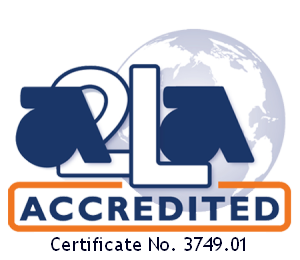As mentioned in our previous article, every laboratory or person that performs activities with human pathogens (risk level 2 or higher) and toxins must have a licence under the Human Pathogens and Toxins Act (HPTA).
Duration of licence
Depending on the type of organisms and / or toxins being held, licences have a specific maximum period in which they are in effect:
| Maximum period | Type of human pathogen or toxin |
|---|---|
| 5 years | Risk group 2 organisms, prions Risk group 3, toxins not prescribed under section 10 (1). |
| 3 years | Risk group 2 organisms, other than prions, toxins prescribed under section 10 (1). |
| 1 year | Risk group 4 organisms |
(1)Toxins prescribed under section 10: Human Pathogens and Toxins Regulations – SOR/2015-44 http://laws.justice.gc.ca/eng/regulations/SOR-2015-44/FullText.html
 Conditions of licence
Conditions of licence
Regardless of the type of licence, the HPTA establishes that every licence holder must adhere to the following conditions:
- A licence holder must not obstruct the biological safety officer (BSO) when carrying out their functions (more on BSO in the next issue).
- The person conducting activities with human pathogens or toxins should communicate the intention of
- importing or exporting
- receiving
- transferring a human pathogen or toxin to the BSO before conducting such activity.
- When transferring a human pathogen or toxin, the licence holder should take reasonable care that the intended recipient is
- exempt from requiring a licence or
- an authorized licence holder for the type of organisms or toxin being transferred.
- When exporting a human pathogen or toxin, reasonable care must be taken that the intended recipient complies with the applicable biosafety and biosecurity standards of the foreign jurisdiction.
- Any person that discovers they are in possession of a human pathogen or toxin beyond the scope of their licence, should immediately inform the BSO, ensure the proper and secure handling and storage of it, and within 30 days safely dispose of it or transfer it to an appropriate facility.
- The BSO must be notified of the intention of:
- increasing the virulence, communicability, resistance or a human pathogen
- or increasing the toxicity of a toxin.
The intention of this article is to summarize the section about licences of the HPTA. For more information please refer to the complete HPTA document.
NEXT ISSUE: Biological Safety Officers



